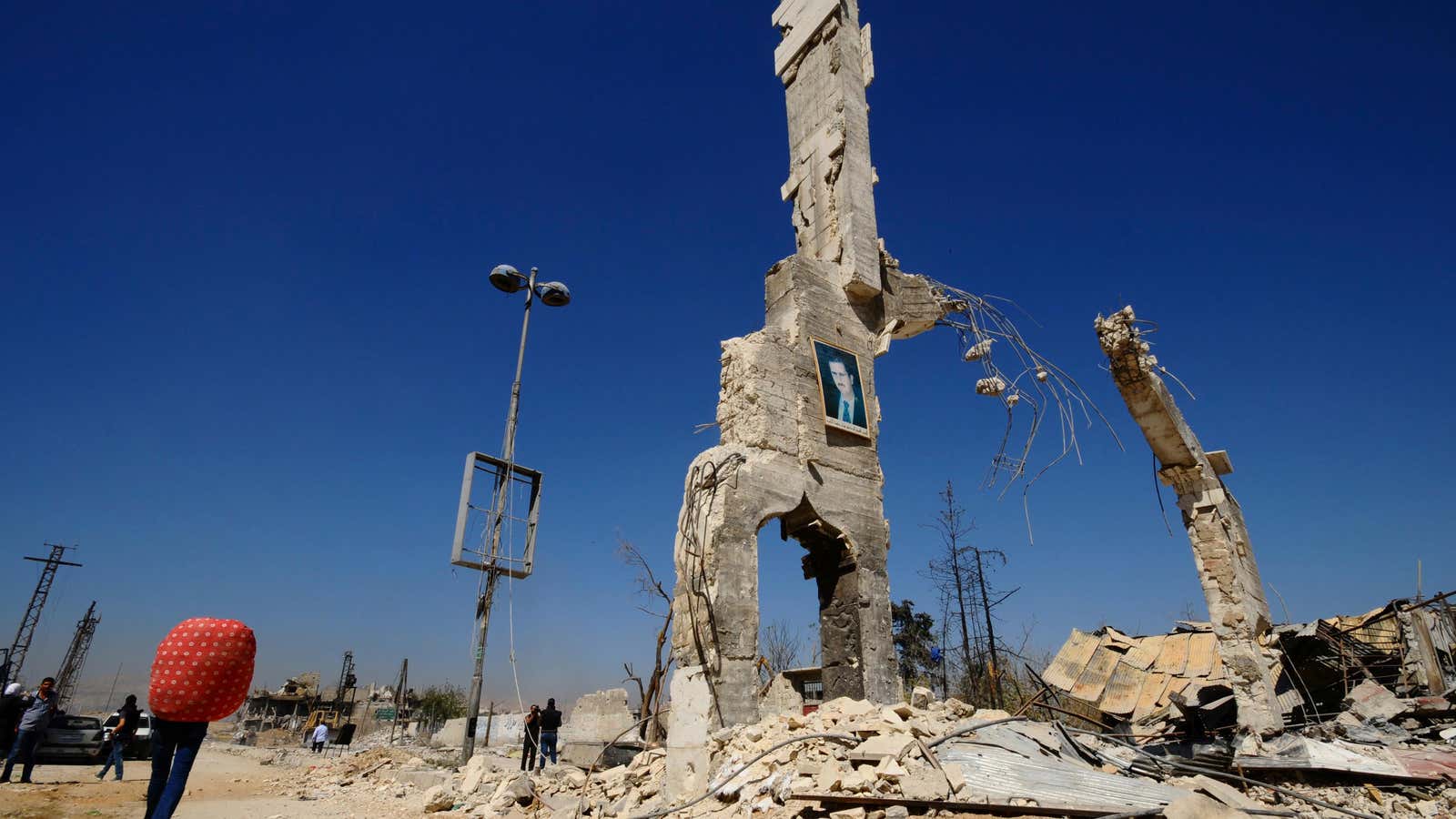Economics is rightly an afterthought compared to the scope of suffering that has accompanied the war in Syria.
Some 250,000 dead are dead. Roughly 5 million people have fled the country. Some 6.5 million others have been displaced within Syria’s borders, according to the UN.
But it’s also worth noting the almost utter economic devastation. The IMF estimates (pdf) more than 75% of the Syrian economy has been destroyed between 2010 and 2015. GDP fell from roughly $60 billion in 2010 to an estimated $14 billion in 2015.
The IMF cautions that its estimates of Syria’s GDP are based on “very limited data and conjecture” due to the fact that Syria’s Central Bureau of Statistics stopped publishing most important data over the last few years.
For the record, the five year destruction of three-quarters of an economy would rank among one of the steeper economic collapses ever recorded, outpacing the catastrophic economic declines of Germany and Japan after their defeat in World War II, according to analysis from economists at the British bank RBS. RBS analysts pegged the decline of German and Japanese GDP at the end of the fighting in 1945 at -66% and -52%, respectively.
“If we hypothetically assume that for Syria the post-conflict rebuilding period will begin in 2018,” IMF analysts wrote, “and the economy grows at its trend rate of about 4½ percent, it would take the country about 20 years to reach its pre-war real GDP level.”
